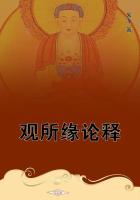The forces of the Emperor and of the /League/ were so victorious all along the line that the former felt himself strong enough to deal with the burning question of the ecclesiastical property that had been seized. In a short time he issued what is known as the /Edict of Restitution/ (1629), by which he ordered that all property acquired by the Protestants contrary to the /Ecclesiasticum Reservatum/ clause of the Peace of Augsburg (1555) should be restored. He commanded, besides, that the terms of the Peace of Passau-Augsburg should be strictly observed, allowed Catholic and Protestant princes the right of establishing their own religion in their own territories (/Cuius regio illius religio/), and permitted Protestant subjects of Catholic princes who felt their consciences aggrieved to emigrate if they wished to do so. About the justice of this decree there could be very little dispute, for it dealt only with the return of what had been acquired by open or veiled spoliation, but it may well be doubted whether it was prudent considering the circumstances of the case. In the first place, it meant the loss of enormous territories for some of the Protestant princes who had enriched themselves from the lands of the bishops and abbots. During the earlier stages of the war many of those men had stood loyally by the Emperor in his struggle against rebels and foreign invaders, but now, mindful of their own temporal interests and the future of their religion, they were prepared to range themselves on the side of their co-religionists in what had become purely a religious war. France, too, alarmed by the victory of Ferdinand II., and fearing that a victory for the House of Habsburg might lead to the establishment of a united empire and the indefinite postponement of the project of securing for France the provinces along the Rhine, was only too glad to pledge its support to the Protestant princes in the war against the Emperor. The young and valiant king of Sweden, Gustavus Adolphus,[6] was a keen spectator of the trend of affairs in Germany, and was anxious to secure for his country the German provinces along the shores of the Baltic. He was not without hopes also that, by putting himself forward as the champion of Protestantism and by helping the Protestant princes to overthrow the House of Habsburg, he might set up for himself on the ruins of the Holy Roman Empire a great Protestant confederacy embracing most of Northern Europe. Finally, even though Saxony had been induced by special concessions to accept the Edict of Restitution, it might have been anticipated that in a purely religious struggle between Catholics and Protestants hatred of the Roman Church would prove stronger than the prejudices against Geneva, and its ruler would be forced to join the enemies of the Emperor.
Gustavus Adolphus, having strengthened himself by a formal agreement with France, marched into Germany at the head of a body of picked troops (1630). He issued a proclamation announcing that he had come to free the Germans from slavery, and he opened negotiations with the Protestant princes, some of whom to do them justice showed themselves very reluctant to become allies of a foreign invader. Ferdinand II.
was but poorly prepared to meet such an attack. The imperial troops had been disbanded, and what was much worse, Wallenstein had retired into private life. Many of the Catholic princes, notably Maximilian of Bavaria, resented his rapid promotion and the grant that had been made to him of the Duchy of Mecklenburg. They prejudiced the mind of Ferdinand against him just at the time his services were most urgently required. Nor, when the first fit of zeal had passed away, were all the Catholic princes anxious to hasten to the support of the Emperor.
Tilly with the forces of the /League/ advanced to bar the progress of the Swedes. He was defeated at Breitenfeld (1631) and his army was nearly destroyed. Gustavus Adolphus pushed rapidly forward towards Bavaria, captured the cities of Wurzburg, Mainz, and Augsburg, and for a time it seemed as if his advance to Vienna was going to be a triumphal march. Over-joyed with the success of his campaign he began to act as if he were really emperor of Germany, thereby giving great offence to many of his German followers. His dreams of power were, however, brought to an abrupt termination. In April 1632 he fought an indecisive battle at Rain on the Lech, where Tilly was wounded mortally, but in November he was slain at Lutzen though his army was victorious.
Ferdinand found himself in great danger. He appealed for aid to Urban VIII. and to Spain but at first the former, believing that the struggle was more political than religious, refused to assist him, though later on, when he realised that the very existence of the Catholic Church in the empire was endangered, he changed his mind and forwarded generous subsidies. Maximilian of Bavaria, who had held aloof for a time, espoused warmly the cause of the Emperor, and Wallenstein, who had been recalled in the hour of danger, raised an immense army in an incredibly short space of time. Oxenstierna, the chancellor of Sweden, took up the work of his master Adolphus and succeeded in bringing about an alliance with the Protestant princes (1633). So low had the national feeling sunk in the empire that the Protestant princes consented to appoint this upstart as director of the campaign and to fight under his command. France supplied the funds to enable the Swedes to carry on the war. For some time very little was done on either side. Negotiations were carried on by Wallenstein with the Swedes, with Saxony, and with France. It was represented to the Emperor that his chosen general was guilty of gross disloyalty.















